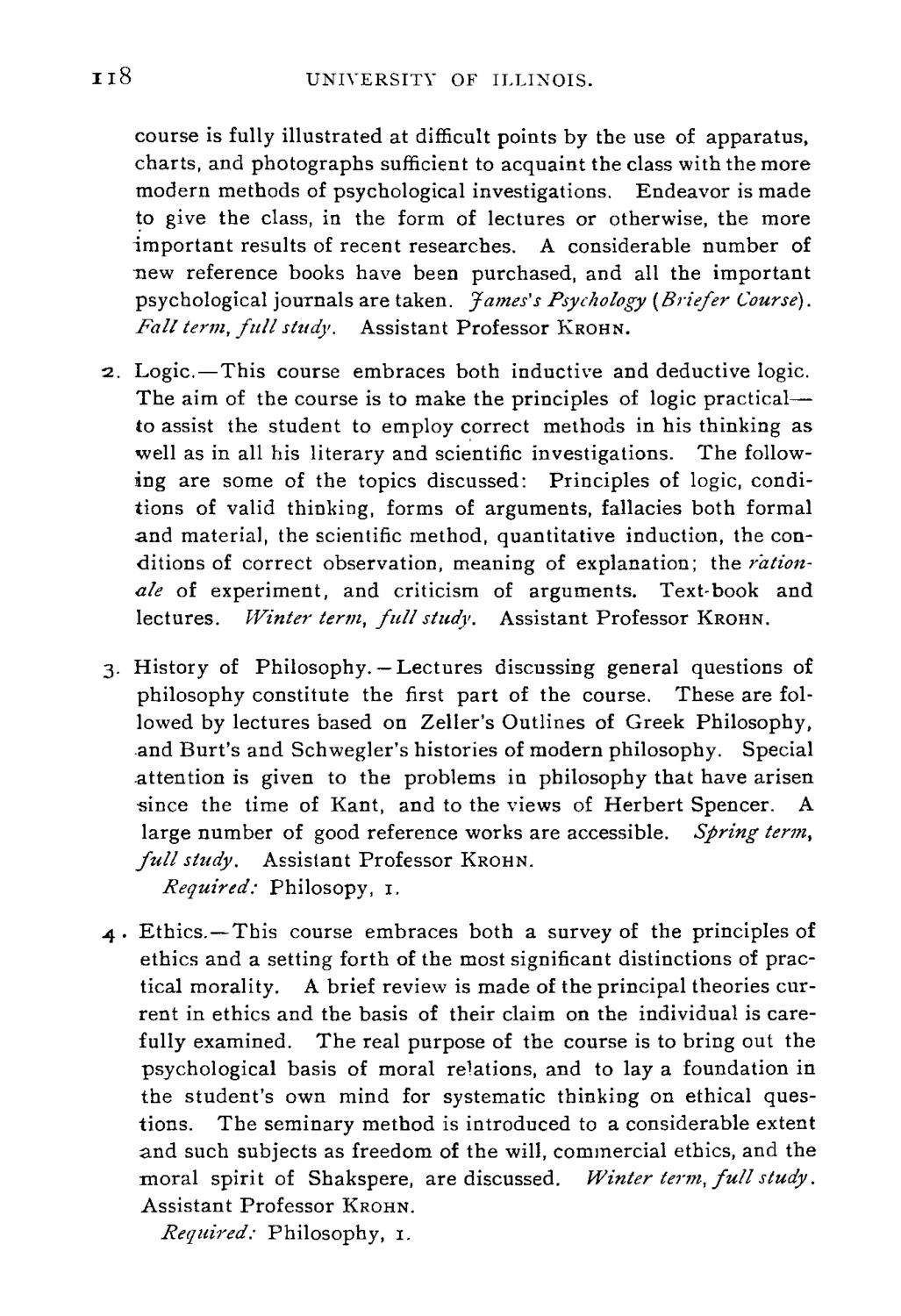| |
| |
Caption: Course Catalog - 1892-1893
This is a reduced-resolution page image for fast online browsing.

EXTRACTED TEXT FROM PAGE:
Il8 UNIVERSITY OF ILLINOIS. course is fully illustrated at difficult points by the use of apparatus, charts, and photographs sufficient to acquaint the class with the more modern methods of psychological investigations. Endeavor is made to give the class, in the form of lectures or otherwise, the more important results of recent researches. A considerable number of new reference books have been purchased, and all the important psychological journals are taken. James's Psychology (Briefer Course). Fall term, full study. Assistant Professor KROHN. 2. Logic.—This course embraces both inductive and deductive logic. The aim of the course is to make the principles of logic practical— to assist the student to employ correct methods in his thinking as well as in all his literary and scientific investigations. The following are some of the topics discussed: Principles of logic, conditions of valid thinking, forms of arguments, fallacies both formal and material, the scientific method, quantitative induction, the conditions of correct observation, meaning of explanation; the rationale of experiment, and criticism of arguments. Text-book and lectures. Winter term, full study. Assistant Professor KROHN. 3. History of Philosophy.— Lectures discussing general questions of philosophy constitute the first part of the course. These are followed by lectures based on Zeller's Outlines of Greek Philosophy, and Burt's and Schwegler's histories of modern philosophy. Special attention is given to the problems in philosophy that have arisen since the time of Kant, and to the views of Herbert Spencer. A large number of good reference works are accessible. Spring term, full study. Assistant Professor KROHN. Required: Philosopy, 1. 4 . Ethics.—This course embraces both a survey of the principles of ethics and a setting forth of the most significant distinctions of practical morality. A brief review is made of the principal theories current in ethics and the basis of their claim on the individual is carefully examined. The real purpose of the course is to bring out the psychological basis of moral relations, and to lay a foundation in the student's own mind for systematic thinking on ethical questions. The seminary method is introduced to a considerable extent and such subjects as freedom of the will, commercial ethics, and the moral spirit of Shakspere, are discussed. Winter term, full study. Assistant Professor KROHN. Required: Philosophy, 1.
| |